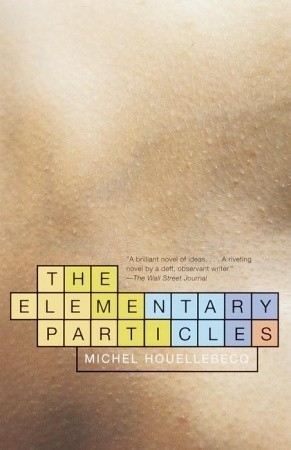More on this book
Community
Kindle Notes & Highlights
The greater the proportion of pure morality in a particular system, the happier and more enduring the society.
Bruno’s earliest memory was one of humiliation.
with disgust, he came to see this as the defining moment of his life. It all appeared to him in the light of cold and unchangeable fact.
Thirty years later, Bruno was convinced that, taken in context, the episode could be summed up in one sentence: Caroline Yessayan’s miniskirt was to blame for everything.
Her mother’s face was charming but plain, and nothing could have prepared her for the painful shock of Annabelle’s beauty; she was quite frightened by it.
The agnosticism at the heart of the French republic would facilitate the progressive, hypocritical and slightly sinister triumph of the materialist worldview. Though never overtly discussed, the question of the value of human life would nonetheless continue to preoccupy people’s minds. It would be true to say that in the last years of Western civilization it contributed to a general mood of depression bordering on masochism.
Karen liked this
My technical competence falls far short of Neanderthal man.
Depressive lucidity, usually described as a radical withdrawal from ordinary human concerns, generally manifests itself by a profound indifference to things which are genuinely of minor interest. Thus it is possible to imagine a depressed lover, while the idea of a depressed patriot seems frankly inconceivable.
He felt compassion for her, for the boundless reserve of love simmering inside her, which the world had wasted; it was perhaps the only human emotion which could still touch him. As to the rest, a glacial reticence had taken over his body. He simply could no longer love.
Men are always interested in finance and value for money, it’s one of their characteristic traits.
“There was something about him,” said Walcott, “something monstrously sad. I think he was probably the saddest man I have ever met, and even the word ‘sadness’ seems inadequate; there was something broken in him, something completely devastated. I always got the impression that life was a burden to him, that he no longer knew how to make contact with any living thing. I think he held out for exactly as long as was necessary to finish his work, and I don’t think any of us will ever know the effort he had to make in order to do so.”
Though it may be difficult for us to understand this now, it is important to remember how central the notions of “personal freedom,” “human dignity” and “progress” were to people in the age of materialism (defined as the centuries between the decline of medieval Christianity and the publication of Djerzinski’s work).


